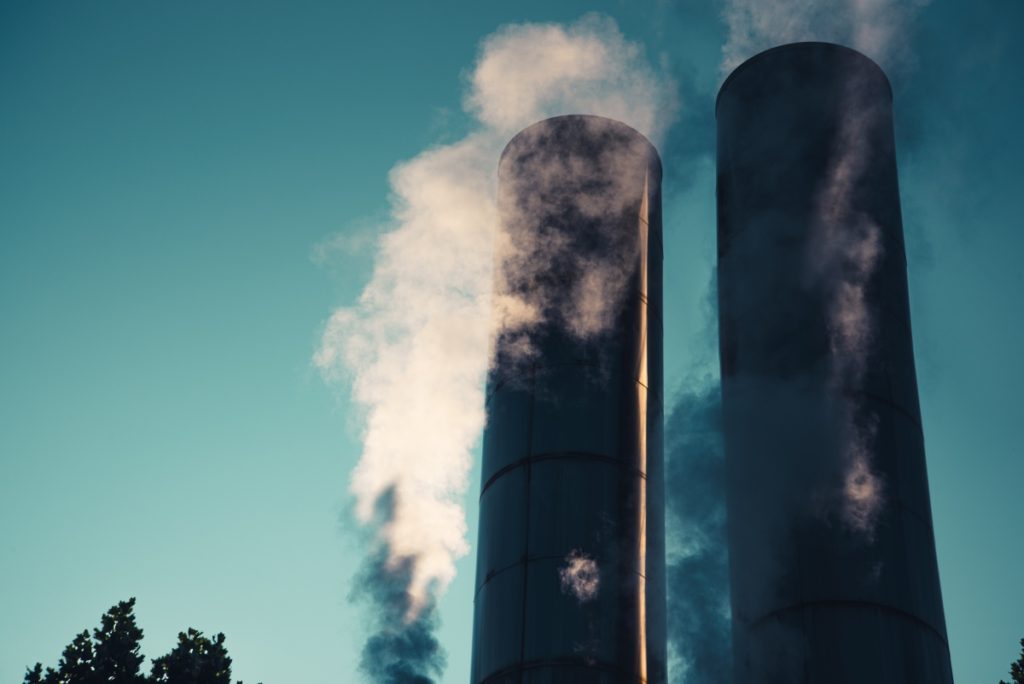
ALL4 has extensive experience with a wide range of air quality permitting programs and issues. Our expertise ranges from simple state-only air permitting to complicated multi-pollutant permitting for large, complex facilities. We leverage not only the talent and dedication of our project team members but also our culture of project ownership to help organizations of any size overcome the challenges associated with air quality permitting in today’s ever-changing regulatory landscape.
Our skilled air quality permitting team includes a diverse group of engineers, scientists, and meteorologists with broad experience and expertise in Federal and state air quality regulations and permitting procedures. Our staff have successfully planned and completed Permit by Rule (PBR), minor New Source Review (NSR), Prevention of Significant Deterioration (PSD), nonattainment NSR, Title V, and Plantwide Applicability Limit (PAL) permitting projects of all sizes in almost every state. ALL4 has prepared construction and operating permit applications for both modifications to existing facilities and for new facilities for countless types of process operations and air pollution controls in a variety of sectors. We also assist facilities with evaluating capital projects to determine if they require air permitting, preparing applicability evaluations and determination requests, and with obtaining flexible permit conditions with advance-approved changes so operations can adapt quickly to changing market conditions. Developing a permitting strategy up front can save time and resources as a project moves forward, especially when public interest is high.
Our Air Quality Permitting Consulting Expertise
We can perform all elements of an air permitting project, including:
- Permit strategy and planning;
- Environmental justice reviews;
- Regulatory applicability determinations;
- Emissions factor development and analyses;
- Emissions test planning and oversight;
- Emissions inventories;
- PSD/NNSR applicability calculations;
- Control technology evaluations;
- Emissions offsets and emissions trading support;
- Air dispersion modeling;
- Permit application development;
- Electronic submittal of applications;
- Responding to agency and/or public comments and questions on the application or draft permit;
- Preparing outreach materials and supporting public hearings; and
- Permit review and negotiation.
ALL4 has experience with a wide range of air quality permitting issues. Our expertise spans many plans and programs, ranging from general permit applications to complex, multi-pollutant and multi-site projects. Leveraging the talents and dedication of our team, and our culture of project ownership, we help organizations of any size overcome the challenges associated with air quality permitting in today’s regulatory landscape.
Speak With an Air Quality Permitting Expert
When and Why Projects Require Air Quality Permitting
New major sources, as well as significant expansions of, or modifications to, existing major sources, frequently require air quality permits. These projects are subject to federal, state and local regulations. Oftentimes, obtaining the proper permits is the most significant challenge and the biggest obstacle to progress.
The first step in air quality permitting is to understand your regulatory requirements. The two most common U.S. EPA air quality programs are:
- New Source Review: The New Source Review (NSR) program is a federal air quality program for new and modified major sources. It requires a series of extensive analyses before construction that looks at pollution control technology and air quality maintenance, among other things. Two main types of NSR permits apply to industrial major sources: Nonattainment NSR (NNSR) permits and Prevention of Significant Deterioration (PSD) permits. ALL4 can determine which applies to your facility and perform the necessary complement of netting analyses and air dispersion modeling to meet these requirements.
- Title V: Major sources must initially apply for Title V operating permits, and re-apply every five years, or before a significant modification to their facility. In the Title V program, the burden of compliance rests on the facility rather than the regulatory agency. This means that businesses must be diligent about reporting, recordkeeping and internal auditing — one of the many reasons why it’s useful to partner with a dedicated air quality permitting expert such as ALL4.
Other air quality permits we can assist with include state-specific construction permits, Plantwide Applicability Limit (PAL) permits and Synthetic Minor Operating Permits (SMOP). Contact our office directly to learn more or read some of the Case Studies available elsewhere on our website.
Common Challenges
Obtaining an air quality permit requires a comprehensive understanding of engineering principles, air quality regulations, technical disciplines and control technologies. Doing so efficiently requires collaboration between technical departments, senior-level management and outside experts. Thorough planning — including having contingency plans in place to respond to unexpected developments — is essential.
ALL4 specializes in solving the challenges associated with complex air permitting projects. We are flexible and can work with your team to ensure a project goes smoothly. With an emphasis on transparency and communication, we provide the outside perspective and regulatory expertise needed to make smart decisions at any stage of a project.
Get Expert Help with Your Air Quality Permitting Needs!
Navigating the complexities of air quality permitting can be challenging, but you don’t have to do it alone. Our team of experienced engineers, scientists, and regulatory experts at ALL4 Inc. are here to help you every step of the way. Don’t let permitting hurdles slow down your progress—reach out to an ALL4 air quality permitting expert today and move your project forward with confidence!
Related Posts:
Posted: August 2024
Businesses in Pennsylvania have long lamented about the time it takes to receive permits from the Pennsylvania Department of Environmental Protection (PADEP). Over the years, different administrations have attempted to address this issue. For example, several years ago PADEP launched […]
Read articlePosted: January 2024
Changes to the Standards of Performance for New Stationary Sources (NSPS) for oil and gas operations have been in the works for several years, dating back to the prior administration. The U.S. Environmental Protection Agency (EPA) recently finalized a rule […]
Read articlePosted: January 2024
Chemical Industry Rules This year is going to be a big year for the chemical manufacturing industry. The United States Environmental Protection Agency (U.S. EPA) is under a consent decree to finish revisions to several National Emission Standards for Hazardous […]
Read articlePosted: December 2023
This year’s fall Carolinas Air Pollution Control Association (CAPCA) technical workshop and forum included a football tailgate party exhibitor social, golf outing, and of course several technical topics of interest to those located in the Carolinas. In addition to the […]
Read articlePosted: October 2023
The New Jersey Department of Environmental Protection (NJDEP) published the final Environmental Justice Rule (EJ Rule) on April 17, 2023. The EJ Rule (N.J.A.C. 7:1C) was promulgated in response to New Jersey’s Environmental Justice Law (EJ Law) that was signed […]
Read articlePosted: October 2023
On October 23, 2023, the United States Environmental Protection Agency (U.S. EPA) published a proposed rule to revise 40 CFR Part 51, Appendix W (the “Guideline on Air Quality Models” or “Guideline”). The proposed revisions include enhancements to the formulation […]
Read articlePosted: October 2023
U.S. EPA has proposed to amend the General Provisions for National Emission Standards for Hazardous Air Pollutants (NESHAP). The proposed amendments relate to both to applicability and deadlines associated with the addition of a compound to the list of hazardous […]
Read articlePosted: September 2023
The U.S. Court of Appeals for the Third Circuit has ruled that the U.S. EPA’s “Reactivation Policy” violates the Clean Air Act (CAA). What is U.S. EPA’s “Reactivation Policy”? The “Reactivation Policy” (Policy) addresses whether existing major stationary sources that […]
Read articlePosted: September 2023
The Commonwealth of Virginia (VA or Commonwealth) enacted the Virginia Environmental Justice (EJ) Act (Act) in 2020, making a VA policy to, “… promote environmental justice and ensure that it is carried out throughout the Commonwealth, with a focus on […]
Read articlePosted: September 2023
South Carolina Department of Health and Environmental Control (SC DHEC) has begun the transition of the Bureau of Air Quality’s (BAQ) regulatory functions like compliance reporting and air permitting to an entirely online format called ePermitting. The air quality program […]
Read article

